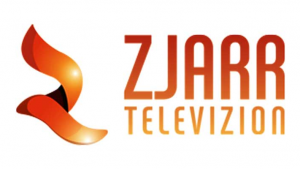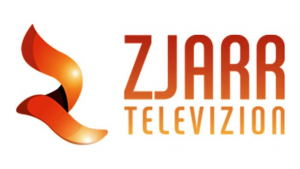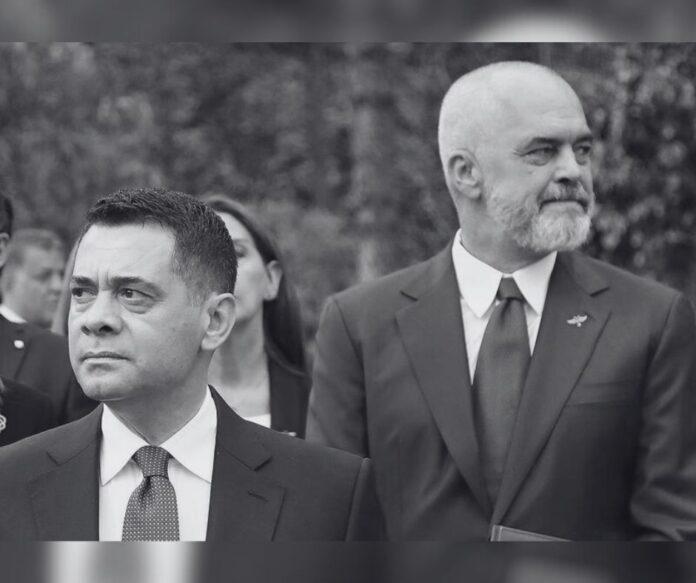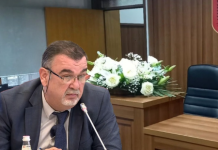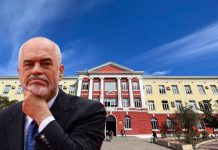Në politikën shqiptare, të qenit numri dy—ndarja si e përfitimeve ashtu edhe e përgjegjësive me udhëheqësin e madh—është një pozicion i rrezikshëm. Më i famshmi numër dy në historinë e Shqipërisë, Mehmet Shehu, dyshohet se vrau veten në vitin 1981, pas gati tridhjetë vitesh si kryeministër nën diktatorin Enver Hoxha. Në një fotografi të botuar pas vetëvrasjes së supozuar, ai duket i shtrirë në shtrat, veshur me pizhame të bardhë, të pastër. Një njollë e vetme, e vogël, e kuqe pranë zemrës tregon precizionin e habitshëm me të cilën ai kishte mundur të qëllonte veten.
Saimir Tahiri, ministri i parë i Punëve të Brendshme nën Kryeministrin Edi Rama, u dënua në vitin 2019 me pesë vjet burg, pasi Gjykata e Krimeve të Rënda ndryshoi në mënyrë të pashpjegueshme akuzën kundër tij nga pjesëmarrje në organizatë kriminale dhe trafik droge në akuzën më të lehtë të shpërdorimit të detyrës. Ai e mbajti gojën të kyçur dhe u lirua para kohe nga burgu për arsye ‘shëndetësore’ familjare.
Së fundmi, Kryetari i Bashkisë së Tiranës, Erion Veliaj, të cilin shumë ndërkombëtarë e konsideronin trashëgimtarin e Ramës, u arrestua për korrupsion dhe pastrim parash. Pasi fillimisht e mbrojti të preferuarin e tij, tashmë Rama ka pranuar fundin e fatit të Veliajt, ndërsa postimet e shkujdesura të Veliajt në Facebook tregojnë se ai vetë ende nuk e ka kuptuar plotësisht që me shumë gjasa do qëndrojë gjatë në burg dhe askush nuk do ta shpëtojë.
Një fat i ngjashëm duket se po i vjen vërdallë numrit dy të tanishëm në qeverinë Rama, Zëvendëskryeministres dhe Ministres së Infrastrukturës dhe Energjisë, Belinda Ballukut, pasi SPAK-u raportohet të ketë nisur hetime për disa afera korrupsioni në ministrinë e saj, ndërkohë që lajmet për jetën e saj ekstravagante janë bërë të përditshme. Rastësisht, Balluku është mbesa e ish-Zëvendëskryeministrit dhe Ministrit të Mbrojtjes, Beqir Balluku, i cili fillimisht ndihmoi Enver Hoxhën në spastrimin e Partisë së Punës të vitit 1956, për t’u eliminuar pastaj vetë në vitin 1975 gjatë një spastrimi tjetër. Duket se brezi i tanishëm i zyrtarëve të lartë ka besim rregullat e regjimeve autoritare nuk do të zbatohen për ta.
Një mësim—që me siguri e ka mësuar ish-Zëvendëskryeministri dhe Ministri i Financave, Arben Ahmetaj, i cili shërbeu 9 vjet (2013-2022) nën Kryeministrin Rama—është se ndoshta është më mirë të mos qëndrosh në vend, sepse ata që kanë njohuri të thella dhe përgjegjësi për dhunën dhe korrupsionin në majat e pushtetit në fund i pret ose vdekja ose burgu. Prandaj kur në korrik 2023 SPAK-u i kërkoi Kuvendit heqjen e imunitetit për ta arrestuar dhe për të kontrolluar pronat e tij, ai vendosi ta braktiste vendin. Dosja në fjalë lidhej me inceneratorin e Tiranës dhe përfshinte Veliajn, ish-Ministrin e Mjedisit Lefter Koka dhe dy biznesmenë, njëri prej të cilëve kishte pasur marrëdhënie të mëparshme me Ahmetajn.
SPAK-u ende nuk ka një akuzë zyrtare për Ahmetajn. Megjithatë, ai vazhdon të jetojë në mërgim në Zvicër, i pasigurt se kur dhe në çfarë kushtesh do të mund të kthehet në Shqipëri. Gjatë muajve të fundit, ai ka dhënë një sërë intervistash për mediat shqiptare dhe italiane, duke akuzuar, ndër të tjera, Kryeministrin Edi Rama për korrupsion madhor, lidhje me organizata kriminale dhe hakmarrje personale ndaj tij. Më 16 mars 2025, ne biseduam me Ahmetajn përmes Zoom-it rreth përvojës së tij të gjatë në qeveri dhe pikëpamjet e tij për zhvillimet e tanishme politike.
Vincent W. J. van Gerven Oei.
Midis viteve 2013 dhe 2016 ju ishit ministër në qeverinë e parë të Kryeministrit Edi Rama. Kjo ishte periudhës së “kanabizimit” masiv të Shqipërisë. Cili ishte qëllimi i kanabizimit dhe pse u lejua të vazhdonte aq gjatë?
Në vitin 2013 unë u emërova Ministër i Zhvillimit Ekonomik, Turizmit, Tregtisë dhe Sipërmarrjes, një ministri “ombrellë”, me përgjegjësinë për të koordinuar politikat ekonomike. Debati im i parë me kryeministrin aktual për kanabizimin ndodhi rreth fundit të vitit 2014, fillimit të 2015-s. Qëndrimi im ishte shumë i fortë kundër kanabizimit. Ky proces në praktikë do t’i pasuronte, fuqizonte dhe do t’i bënte më të dhunshme grupet kriminale, dhe do të deformonte krejtësisht ekonominë shqiptare.
Gjatë dy takimeve të gjata jashtë Tirane të qeverisë kam qenë shumë i drejtpërdrejtë në qendrimin tim—kam dëshmitarë për këtë. Kryeministri kishte një teori sipas së cilës kanabizimi do të nxiste ekonominë. Unë e pyeta: “Po Kolumbia? Kolumbia do të ishte vendi më i jashtëzakonhsëm në botë nëse kjo do të ishte e vërtetë!” Por kanabizimi ndodhi dhe pasojat tani i dinë të gjithë dhe po i vuan e gjithë shoqëria shqiptare.
Kjo ishte përplasja ime e parë me të. Kisha patur shumë respekt për të. Mendoja se ai do ta ndryshonte Shqipërinë. Në fillim e mendoja një reformator, por kjo përplasje më la me një ndjenjë shumë të hidhur për atë që po ndodhte.
Në vitin 2016, ju u bëtë Ministër i Financave. Jam i sigurt që jeni në dijeni të shumë raporteve ndërkombëtare mbi rolin e parave të drogës në ekonominë shqiptare gjatë asaj periudhe. Cilat kanë qenë efektet ekonomike të këtyre flukseve të paligjshme financiare? Cili është dëmi ndaj ekonomisë shqiptare?
Ka katër pasoja kryesore. Së pari, paraja nga droga pasuroi e fuqizoi grupet e organizuara kriminale që ekzistonin në Shqipëri, si dhe mundësoi krijimin e grupeve të reja duke qenë se droga tashmë ishte mundësi e madhe për të gjithë. Si numri ashtu edhe fuqia e këtyre grupeve kriminale u shumëfishuan.
Së dyti, solli pasoja shkatërruese në bujqësi. Shumë njerëz braktisën bujqësinë tradicionale dhe iu kthyen kultivimit të kanabisit. Nuk mund ta fajësosh një fermer për këtë—faji është i qeverisë dhe grupeve kriminale.
Së treti, solli pastrimin masiv të parave, i cili u kanalizua kryesisht në sektorin e ndërtimit. Sot në Tiranë ka 64 000 apartamente bosh dhe megjithatë po ndërtohen kulla të reja. Si është e mundur që ndërtimi të jetë një gjenerues ekonomik, ndërkohë që ka kaq shumë apartamente bosh? Çfarë lloj parash po i financojnë ato, kur përqindja e kredive bankare të dhëna është një fraksion i vogël i kostos së ndërtimit? A është pastrim parash? E sigurtë është që ky nuk është zhvillim; kjo është një ekonomi në të zezë që u sjell përfitime politikanëve dhe njerëzve të lidhur me rrjetet e pastrimit të parave.
Dhe së katërti, është dëmi në reputacionin ndërkombëtar të Shqipërisë. Sepse ku përfundoi gjithë ky kanabis? Në Greqi, Itali, Gjermani… Sot, Shqipëria ka fituar reputacionin e një narkoshteti. Sa kokainë apo heroinë kapet realisht në portin e Durrësit? Aspak ose shumë pak. Ndërkohë, sasi të mëdha droge që burojnë nga Shipëria apo kalojnë nëpër Shqipëri kapen në vendet fqinje. Dhe ky kalim nga kanabisi te drogat e forta është gjithashtu një “dhuratë” nga kanabizimi i vendit.
Nëse do të bëja një analizë të gjendjes ekonomike, ju do të tronditeshit. Për shembull, shikoni rritjen ekonomike: ka vetëm dy motorë – turizmin dhe ndërtimin. Si është e mundur që kontributi i turizmit si në vlerën në lekë ashtu edhe në vlerën reale në ekonomi nuk janë rritur në përmasa të mëdha?
Ndërkohë, ekonomia po humbet bazën e saj prodhuese. Në çdo ekonomi normale në botë, prodhimi vendas i ushqimeve dhe pijeve furnizon sektorin e turizmit dhe kështu bashkë me turizmin rritet baza prodhuese e vendit. Por në Shqipëri, turizmi furnizohet kryesisht nga importi. Mund të shihni lehtësisht statistikat që tregojnë se sektori prodhues është duke dhënë shpirt. Për më tepër, Shqipëria ka filluar të humbasë edhe atë pjesë të vogël të ekonomisë prodhuese që ka qenë e orientuar drejt eksportit. Kjo do të thotë që turizmi po ndihmon vetëm një grup të vogël aktorësh dhe nuk po shpërndahet në të gjithë popullsinë.
E gjithë kjo fuqizon, sikurse ju thatë, organizatat kriminale brenda Shqipërisë. Por nuk ndalet këtu. Këto organizata nuk pastrojnë thjesht para në ndërtim. Për të bërë këtë atyre u duhet akses politik. Ju keni folur për anëtarë të krimit të organizuar që shihen në zyrat e Kryeministrit, që marrin tenderë shtetërorë dhe që veprimtaria e tyre e pastrimit të parave në ndërtimi koordinohen prej tij—është ai që zgjedh arkitektët që bëjnë projektet, jep lejet e ndërtimit, jep licencat e kazinove e kështu me radhë. Dhe në këmbim, ai ka marrë shumë favore: fluturime çarter, qëndrime në hotele detoksifikimi, bileta për ndeshje basketbolli në Amerikë—dhe këto janë vetëm maja e ajsbergut. Ju keni thënë se “pas çdo afere do të gjeni emrin e tij” dhe keni parashikuar se “trashëgimia e tij do të jetë krimi i organizuar.”
Kryeministri i mohon të gjitha këto. Sa gjatë mendoni se do jetë ai në gjendje ta ruajë dhe kontrollojë ai këtë gjendje të vendit?
Një ish-deputet i Partisë Socialiste tha diçka që nuk do ta harroj kurrë. Në Parlament ai tha Ramës: “Nëse Sali Berisha e kishte krimin e organizuar si këpucët, ti e mban si një medalion në gjoks.” Shqipëria gjithmonë ka pasur krim të organizuar. Por kërcënimi ndaj politikanëve dhe qeverisë nuk ka qenë kurrë si tani. Dhe kjo është ajo që unë them se kjetë trashëgimia që Rama do i lërë vendit.
Sot, ka një anë të errët pas çdo projekti, pas çdo tenderi. Rrallëherë sheh një proces të drejtë. Shihni ofertat fituese të tenderëve: janë gjithmonë 98%, 99% e buxhetit maksimal të përcaktuar nga institucionet tenderuese. Si mund të ndodhë kjo? Në ç’vend tjetër të botës ndodh kjo? Askund. Projekte infrastrukturore, rrugë, energji, ujësjellës… Të gjithë e dinë këtë, tashmë kjo është bërë e ditur për çdo shqiptar të thjeshtë. Por shpirti i tyre i reagimit është mpirë nga helmi i propagandës.
Ju pyetët sa do të mund të mbajë kjo fasadë. Do t’ju përgjigjem me një pyetje tjetër. Në Shqipëri, prania e shërbimeve të huaja sekrete është e lartë dhe ata dinë gjithçka.
Por çfarë ka ndodhur në Bashkimin Evropian që ata në fakt ata nuk thonë asgjë? Nëse lexon raportet e Departamentit të Shtetit apo të Komisionit Evropian, ka një ndryshim midis asaj që këto institucione shkruajnë në raportet e tyre dhe asaj që ato thonë publikisht për Shqipërinë. Nëse ata do të shqiptonin në publik qoftë edhe 10% të asaj që shkruajnë në raportet e tyre, në Shqipëri do të kishim sot një perceptim dhe një gjendje politike krejtësisht të ndryshme nga kjo që kemi. Pse nuk thonë asgjë për këtë? Pse ato mbyllën sytë për kanabizimin? Praktikisht, fasada tashmë ka rënë.
Të gjithë shtyllat e një shoqërie demokratike janë të helmuara. Më thuaj një media të madhe që nuk është nën ndikimin e qeverisë. Ka portale të vogla lajmesh që janë jashtë ndikimit të qeverisë, por ato veprojnë nën frikë. Ka një sistem drejtësie të përmbysur që kontrollohet politikisht dhe që është i fiksuar pas statistikave. Ka një parlament që në fakt merr urdhra nga Kryeministri. Krimi i organizuar po lulëzon dhe ka marrëdhënie të ngushtë me qeverinë. Dhe në fund, ka një opozitë që është shkatërruar. Pra, për çfarë fasade po flasim këtu? Vërtet mendon se evropianët nuk i shohin këto?
Ata i shohin, por ndoshta nuk janë shumë të interesuar.
Ç’të them! Nëse ata nuk janë të interesuar për demokracinë në Shqipëri, kjo do ishte vdekje shpirtërore për mua.
E prekëm më parë mënyrën se si paratë e krimit përfundojnë në projekte ndërtimi përmes tenderëve të qeverisë. Disa herë ke thënë në intervista: se “tenderët janë thembra e Akilit e korrupsionit.” Ndër shumë pushtetarëve të tjerë, ke bërë thirrje për hetim të tenderëve të dhëna nga Belinda Balluku (për tunelin e Llogarasë, Rrugën e Arbrit, autostradën Thumanë–Kashar, etj) dhe Erion Veliaj (për shkollat publike, etj.). Tani jemi në kushtet kur në fakt Kryetari i Bashkisë së Tiranës, Erion Veliaj, është nën arrest, në burg duke pritur gjykimin për disa nga këta tenderë për të cilët ti ke folur. Dhe jo vetëm kaq, në të njëjtën dosje, siç besoj e di, përmenden edhe disa pronarë kompanish ndërtimi që kanë marrë favore dhe dhënë favore në këmbim. Si i sheh këto zhvillime?
Kjo është e gjitha një teatër i Ramës. Para së gjithash, dua të them se për mua është mesjetare që e kanë çuar Erionin në burg. Ata mund ta hetonin në gjendje të lirë, por jo duke qëndruar kryetar bashkie. Nuk mund të qëndrosh në detyrë ndërsa je duke u hetuar dhe akuzuar. Në të njëjtën kohë, nuk pajtohem me qëndrimin e Erionit për të sulmuar prokurorët dhe familjet e tyre.
Së dyti, nëse shikon arsyen pse Erioni është në burg, ajo nuk ka lidhje me çështjen e vërtetë, as me inceneratorin dhe as me aferën 5D. Pse? Sepse këto do ta çonin hetimin te Kryeministri, dhe ata nuk mund të prekin shefin e tyre. Pra, edhe një herë, ky është një teatër i madh i Ramës. Ai donte të tundte flamurin e Reformës në Drejtësi, dhe pa Erionin brenda, ky flamur do të binte.
Fatkeqësisht, Partia Socialiste ka ndaluar së shkruari programe. Praktikisht, ajo që po them është se çështja e Erionit është një teatër i Ramës për të futur më shumë frikë brenda partisë. Sepse partia duhet të qëndrojë nën frikë dhe trysni, ndërsa ai tund flamurin e Reformës në Drejtësi për burokratët evropianë. Është e gjitha një teatër, edhe rasti i Erionit, i orkestruar strategjikisht me shumë kujdes nga Rama.
I ke quajtur Shtetet e Bashkuara “garancinë e vetme” për suksesin e Reformës në Drejtësi dhe pavarësinë e gjyqësorit. Por tani ato po tërhiqen nga angazhimet e tyre në mbarë botën, përfshirë projekte si Reforma në Drejtësi. Ndërsa ndohin këto ndryshime në qeverinë amerikane, cili do të jetë ndikimi i tyre në Shqipëri?
I konsideroj Shtetet e Bashkuara si atdheun tim të dytë. Kam studiuar atje si student më shumë se një herë, kam ndjekur kurse në Universitetin Georgetoën, Universitetin Harvard dhe shumë institucione të tjera. Ndërsa piqesha si student, sytë, zemra dhe veshët e mi ishin tek Shtetet e Bashkuara.
Nuk mund të analizoj se çfarë po ndodh sot në Shtetet e Bashkuara, sepse ky nuk është qëllimi ynë këtu, por mendoj se reagimi i parë është një lloj perceptimi se ata po heqin dorë nga Reforma në Drejtësi, që ndoshta lidhet me reflektimet dhe hetimet e tyre mbi USAID-in dhe asistencën ndërkombëtare amerikane. Por unë nuk besoj se ata do të heqin dorë nga Shqipëria. Të mos heqin dorë nga Shqipëria do të thotë se demokracia është e rëndësishme, jo vetëm si një anëtar strategjik i NATO-s në kufijtë e aleancës. Nuk mund të jesh aleat i fortë pa qenë demokraci. Dhe nuk mund të ketë demokraci pa drejtësi të vërtetë.
Dhe unë besoj se një ditë, herët a vonë, ata do t’i rikthehen thelbit të asaj që ka ndodhur me Reformën në Drejtësi dhe ajo do të rikalibrohet. Vërtet besoj se do të ketë një përpjekje tjetër serioze dhe të thellë për të riafirmuar brenda sistemit të drejtësisë pavarësinë e tij, repsketimin e partimit të prezumimin e pafajësisë, të të drejtave të njeriut dhe të së drejtës për një gjykim të drejtë.
Këto janë koncepte që, në fund të fundit, janë pjesë e shtetit të së drejtës. Ne i kemi këto në letër në legjislacionin shqiptar. Por kjo është një çështje e kulturës politike. Si do t’i zbatonte në praktikë një vend i huaj këto koncepte në Shqipëri?
Kjo është shumë e vërtetë. Është një diskutim politiko-kulturor. Tani, gjithçka që ka ndodhur me sistemin e drejtësisë, me median, me krimin e organizuar, me institucionet, qartësisht ka qenë një projekt personal i kryeministrit aktual.
Nuk e di si partnerët tanë ndërkombëtarë e gjykojnë Shqipërinë e sotme si partner demokratik në zhvillim! A janë ata të interesuar në status quo-në e sotme? A nuk u intereson atyre si qeveriset vendi? Politikanët shqiptarë një ditë do duhet të mbajnë përgjegjësi për atë që realisht kanë bërë në Shqipëri.
Përgjegjësi paraj kujt?
Para popullit dhe para një drejtësie më të mirë, të pavarur.
Si mundet që ata kanë ndërmarrë një ekspeditë gjuetie mbi jetën time? Pse nuk shkojnë drejtpërdrejt tek inceneratori i Tiranës? Pse po përjashtojnë nga hetimi njerëz që nuk duhet të përjashtohen? Pse nuk i qepen tunelit të Llogarasë? Pse nuk i qepen AKSHI-t? Është një rrëmujë totale! Pse nuk i qepen autostradës Thumanë–Kashar? Pse nuk i qepen EchoPark-ut?
Po çështjes Beketi? Shqipëria humbi 130 milionë euro në këtë cështje. Pse SPAK-u nuk i dërgon një letër gjykatës së arbitrazhit që gjykoi çështje Bekti dhe t’i kërkojë dosjen? Në atë dosje do të gjeni që Beketi ka fituar vetëm për shkak të mesazheve kërcënuese të Kryeministrit për mbylljen e televizionit të tij.
Pse nuk i qepen çështjes McGonigal? Pse nuk i qepen anijeve për prodhimin e energjisë në Vlorë, që është një aferë e pastër korrupsioni? Pse nuk analizojnë dhe ndjekin kostot e rrugëve, të cilat janë disa herë më të larta se në vendet më të shtrenjta evropiane? Ata ndërmarrin ekspedita gjuetie për të shmangur thelbin e shumë aferave korruptive. Ata marrin urdhra…
Ndoshta po e bëjnë—ne nuk i dimë të gjitha çështjet që SPAK-u është duke hetuar aktualisht, apo jo?
Po atëherë, pse i zvarrisin çështjet për vite me rradhë dhe pastaj i përshpejtojnë brenda pak muajsh? Prandaj unë i referohem drejtësisë si selektive, e udhëzuar dhe e urdhëruar nga politika. Kjo është shumë, shumë e trishtueshme.
Por, përsëri, unë besoj se Shtetet e Bashkuara do ta rikalibrojnë Reformën në Drejtësi dhe, mbi të gjitha, do ta largojnë politikën dhe kontrollin politik nga funksionimi i sistemit të drejtësisë, duke i dhënë fund përdorimit të drejtësisë si instrument politik, siç është përdorur deri tani—që është momenti më i keq nga të gjithë.
E ke quajtur “politike” ndjekjen tënde penale për çështjen e inceneratorëve. E ke përshkruar atë si “terror politik”, ke folur për kërcënime ndaj teje dhe familjes tënde dhe je shprehur se ke frikë për jetën tënde. Kush janë ata që po të përndjekin dhe pse?
Le t’i ndajmë kërcënimet ndaj jetës sime dhe përndjekjen politike time dhe të familjes sime. Në intervistat e mia, i kam kërkuar SPAK-ut të më tregojë një firmë timen në të gjithë procedurën për inceneratorin e Tiranës. Nuk isha unë autoriteti kontraktor. U kam kërkuar të më tregojnë një përfitim nga paratë publike që familja ime ka marrë me firmën time ose me çfarëdo firme.
Kryeministri ka thënë publikisht: “Nëse do kisha bërë rolin e gjykatësit, gjërat do kishin qenë shumë më keq” për mua. Ai donte një kokë turku për të larguar vëmendjen nga vetja dhe nga ata që e kanë kryer këtë aferë, njerëz në rrethin e afërt të Kryeministrit. Ku është inceneratori i Tiranës? Ku janë paratë? Ndiqni paratë. Ka shumë transaksione aty dhe ka shumë njerëz të përfshirë.
Pra, në thelb, përndjekja ime politike dhe përndjekja e familjes sime është vepër e Kryeministrit. Dhe, fatkeqësisht, SPAK-u ka qenë më shumë i zellshëm për t’iu bindur Kryeministrit dhe për të prodhuar “statistika.”
Por ata kanë qenë të zellshëm gjithashtu për shkak të trysnisë amerikane, apo jo? Dua të them, ne e mbajmë mend ambasadorin amerikan që kërkonte me ngulm “peshqit e mëdhenj.” Ti flet për mënyrën se si Shtetet e Bashkuara mund të ndihmojnë, në një mënyrë apo në një tjetër, për të rikalibruar Reformën në Drejtësi. Por në të njëjtën kohë, amerikanët kanë ushtruar trysni të fortë mbi SPAK-un për t’i prodhuar këto “statistika,” për të prodhuar rezultate. Është më e ndërlikuar apo jo?
Po, është e ndërlikuar, por nuk jam dakord me ty. Shtetet e Bashkuara nuk shkojnë te SPAK dhe i thonë të devijojë, të përqendrohet tek njerëzit e nivelit të dytë. Ata nuk thonë: mos ndiqni paratë, mos ndiqni procedurën, shpërfillni të drejtat e njeriut, shpërfillni parimin e prezumimit të pafajësisë. Shtetet e Bashkuara kanë tentuar të ngjizin një sistem drejtësie të pavarur dhe profesional, i cili respekton të drejtat e njeriut, ligjin, prezumimin e pafajësisë dhe dinjitetin e njerëzve. Por kjo nuk ka ndodhur.
A është ky dështim i imi në komunikimin tim me partnerët ndërkombëtarë? Ua kam vënë në dukje atyre se është herët për ta quajtur rastin tim një dështim, por ky proces është ende larg të qenit një proces i shëndoshë. Pra, praktikisht, përsëri, vazhdoj në të njëjtën rrugë. Kam besim te Shtetet e Bashkuara. Mund të tingëlloj naiv, por në jetën time ky “naivitet” ka qenë parimi im.
Do të doja t’i kthehesha pak më vonë këtij naiviteti, por çfarë mund të më thuash për kërcënimet ndaj jetës tënde?
Kam marrë kërcënime personalisht. Së pari, një telefonatë direkte nga burgu, shumë e qartë: “Do të të vrasim. Të shohim nga kamerat kur parkon makinën, kur merr fëmijën”, etj. Ata kishin akses tek kamerat e pallatit në Tiranë ku kisha marrë një apartament me qira.
Kërcënimi i dytë ishte një telefonatë tjetër nga një numër britanik që nuk e njihja. Dhe i treti ishte një person me motor. Ishte si në një film mafioz. Po ecja në rrugë dhe ky person më afrohet: “Përshëndetje, Arben.” Unë i përgjigjem: “Përshëndetje, si je?” Dhe ai më thotë: “Pra, po ecën?” “Epo, kam ecur gjithë jetën time.” Dhe pastaj ai thotë: “Po, por aty do ta gjesh vdekjen.”
Pastaj ndodhi një incident te Parku i Liqenit të Tiranës, ku u përpoqën të bënin një foto të foshnjës sime të sapolindur. Gruaja ime e tanishme kishte punësuar një dado filipinase dhe në një moment ajo po qante. Doli se ishte kërcënuar për të bërë foto e video të miat dhe të asaj që ndodhte në shtëpinë time dhe për t’ua dorëzuar këto njerëzve në një kompani të quajtur Emerald Spa. Atëhere u tmerrova vërtet.
Kur filloi e gjitha kjo?
Menjëherë pasi u shkarkova nga Kryeministri. Ishte shtator apo tetor 2022 kur filloi përndjekja. Pastaj largova familjen. Nuk u ktheva më në Shqipëri sepse kisha frikë për jetën time. Kisha frikë për jetën e familjes sime.
Nëse do të përfundoja në burg, jam i sigurt që nuk do dilja i gjallë nga andej. Duke ditur që jam pak emocional, ata do të kishin krijuar ndonjë incident në burg dhe do të thoshin: “Eh, që ta dini, ngaqë u grind, prandaj u vra.”
Për rrjedhojë, tani për tani po jeton në mërgim. Në çfarë kushtesh do të konsideroje të ktheheshe?
Mendoj për këtë çdo ditë. Kur ta kuptoj që Kryeministri ka humbur kontrollin e tij mbi drejtësinë, atëhere do të kthehesha—edhe në burg, nëse do të doni.
Çfarë do të ishte një shenjë se ai po e humbet kontrollin mbi sistemin?
Do ta shohim. Unë kam sumë besim në Shtetet e Bashkuara. Ka patur shumë ulje të buta, por ka aptur edhe shumë përplësje në tokë në historinë e sistemeve politike.
Mund të hamendësohet se rrethana në të cilën ai do të humbiste kontrollin mbi sistemin e drejtësisë është kur të mos jetë më kryeministër.
Mund të jetë kusht, por nuk besoj se është. Beteja ime nuk ka të bëjë me faktin nëse ai është apo nuk është aty ku është. Beteja ime ka të bëjë me të vërtetën mbi çështjen time dhe të vërtetën mbi Shqipërinë. Sot nuk ka asnjë mekanizëm kontrolli dhe balncimi në sistemin e drejtësisë. Pra, nuk ka asnjë garanci që kur një udhëheqës zëvendësohet me një tjetër, të nesërmen do të ketë kontroll dhe ekuilibër.
Nuk ka krim më të madh sesa të pengosh vendin të ketë një drejtësi të vërtetë dhe të pavarur. Është krimi më i madh, sepse ai helmon demokracinë dhe i hap derën dhunës. Shpresoj që kjo të mos ndodhë më kurrë në Shqipëri.
E sheh këtë në horizont? Dua të them, ti e ke përjetuar vitin 1997.
E kam përjetuar vitin 1997 dhe shpresoj të mos e shoh më kurrë. Ishte një katastrofë. Jo, unë lutem çdo ditë që kjo të mos ndodhë më në Shqipëri. Shpresoj që vetëdija e popullit shqiptar të ringjallet dhe që ata të mos i marrin punët në duart e tyre me dhunë, por në mënyrën më demokratike të mundshme.
Dua t’i kthehem naivitetit që përmende më parë. E ke thënë disa herë në të shkuarën që ke qenë naiv, një “idiot i shkolluar,” që nuk e pe që në fillim se projekti politik i Ramës ishte rikthimi i strukturave qeverisëse autokratike. Në një nga intervistat e tua ke thënë: “Kam një përgjegjësi morale për naivitetin tim, për besnikërinë dhe besimin tim, por kam folur me shifra dhe fakte.” Ky pohim më bëri shumë përshtypje, duke patur parasysh rolin tënd të gjatë brenda qeverisë shqiptare. A mund të thuash diçka më shumë për këtë?
Në jetën time, kam disa gjëra për të cilat jam krenar, e them këtë në mënyrë shumë modeste. Dhe mund të përmend vitin 1991. Pastaj mbylljen e skemave piramidale me Ministrin e atëhershëm të Financave Arben Malaj dhe Kryeministrin Fatos Nano.
Më pas, jam krenar për betejat që kam bërë në emër të Partisë Socialiste në zgjedhje dhe gjithashtu për zhvillimin e vendit. Jam krenar që kam ulur deficitin buxhetor në një kohë krize ekonomike në 1,6%, një rekord historik. Jam krenar që kam ulur borxhin e publik dhe që kam rishkruar ligjin e buxhetit për të vendosur disiplinë të rreptë financiare në pushtetin vendor dhe në qeveri. Jam krenar për përpjekjet e mia të pafundme dhe netët pa gjumë për të organizuar procesin e rindërtimit pas tërmetit të vitit 2019 ose për gjetjen e vaksinave gjatë pandemisë. Por unë gjithashtu marr përgjegjësinë time morale, sepse kisha shumë besim tek ai person dhe kam qenë shumë naiv.
Sigurisht, shumë herë kam biseduar me kolegët e mi që janë aktualisht në qeveri dhe me ish-ministra për mënyrën se si shumë gjëra janë deformuar. Partia Socialiste e ka humbur tashmë shpirtin e saj socialist dhe parlamenti nuk është më një parlament në kuptimin e vërtetë të fjalës, sepse është nën diktatin e një personi të vetëm. Nuk e kam parë kurrë median në këtë gjendje. Nuk e kam parë kurrë krimin e organizuar kaq afër politikanëve dhe në fakt duke ndikuar drejtpërdrejtë vendimmarrjen qeveritare. Dhe pastaj korrupsioni në infrastrukturë, në ujë, në energji, në teknologjinë e informacionit apo edhe në sistemin shëndetësor është i tmerrshëm.
Pra, po, kam përgjegjësinë time morale. Për shumë vite, e kam besuar këtë njeri. Ai ishte shumë i dashur për mua. Mendoja se do ta ndryshonte Shqipërinë.
Ai e ka ndryshuar Shqipërinë
Për më keq, po.
Ju e keni diskutuar gjendjen politike, ekonomike dhe, nëse dëshironi, edhe kriminale me kolegët në qeveri, disa nga të cilët janë ende atje. Çfarë i motivon ata të qëndrojnë ku janë?
Lejomë ta shpreh kështu: Njëra prej tyre, fatkeqësisht, është, siç e quaj unë, “mjeshtrja e gjithë korrupsionit”.
Belinda Balluku?
Po. Ajo është instrumenti kryesor i korrupsionit. Është e pabesueshme, e paimagjinueshme. Të tjerët tashmë janë jashtë qeverisë. Disa prej tyre kanë frikë se mund të hiqen edhe nga lista e deputetëve. Të tjerë nuk janë më deputetë. Njëri prej tyre tani është drejtuesi politik i një qarku. Ai ka vendosur të heshtë. Ka bërë një kompromis me veten e tij, dhe unë nuk e gjykoj.
Frika është penguesi kryesor. Dhe frikë për çfarë? Kryeministri përpiqet t’i verë në pozitë të pasigurtë për karrierën e tyre apo për sigurinë e tyre në të ardhmen, jo në kuptimin e sigurisë së jetës, por nga SPAK-u—kamxhiku në duart e Kryeministrit.
Si e shihni të ardhmen e Shqipërisë?
Është e vështirë të thuash. Unë ende nuk shoh procese politike normale atje, nuk shoh debatin e zjarrtë kundër krimit të organizuar, kundër varësisë politike të drejtësisë, kundër korrupsionit, për një parlament funksional, për media të pavarura. Ende nuk ekziston ky debat.
Kam një teori se e gjitha është e orkestruar me qëllim që debati të drejtohet në drejtime të tjera, në çështje fallco. Nuk mund të parashikoj.
Jam larg nga terreni tani, por një gjë mund t’ju them se sot, Shqipëria nuk është një vend demokratik. Dhe nuk është as një demokraci hibride. Është një autokraci e pastër personale, përverse në çdo drejtim./Lapsi.al
